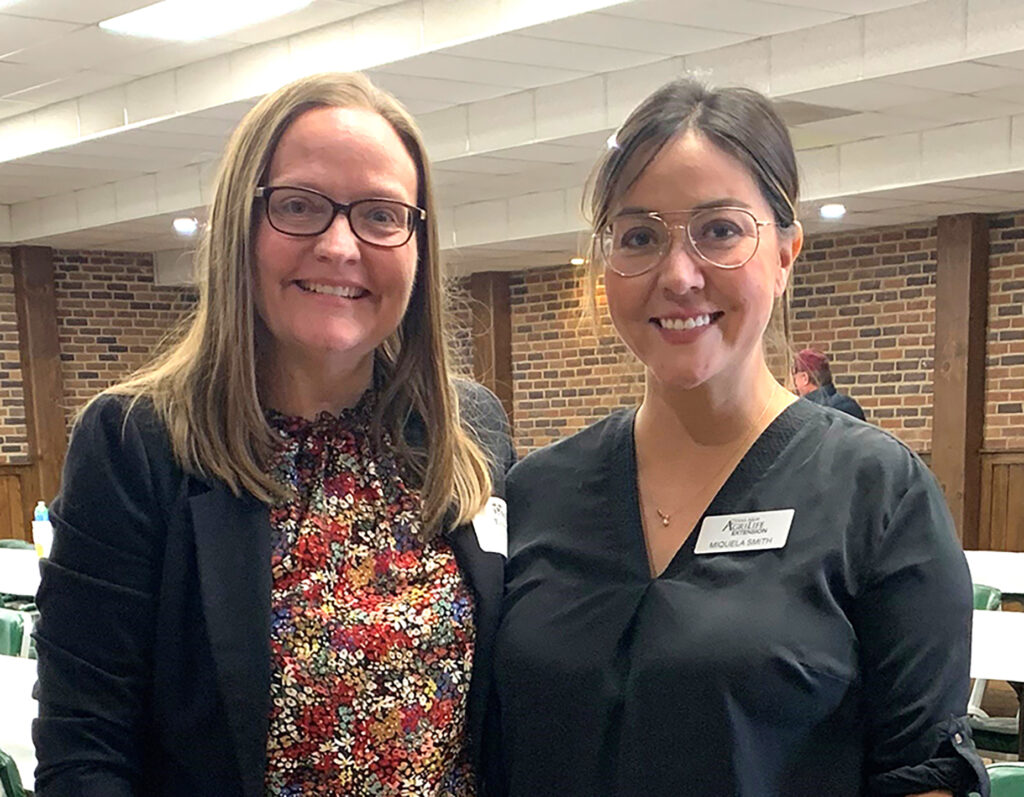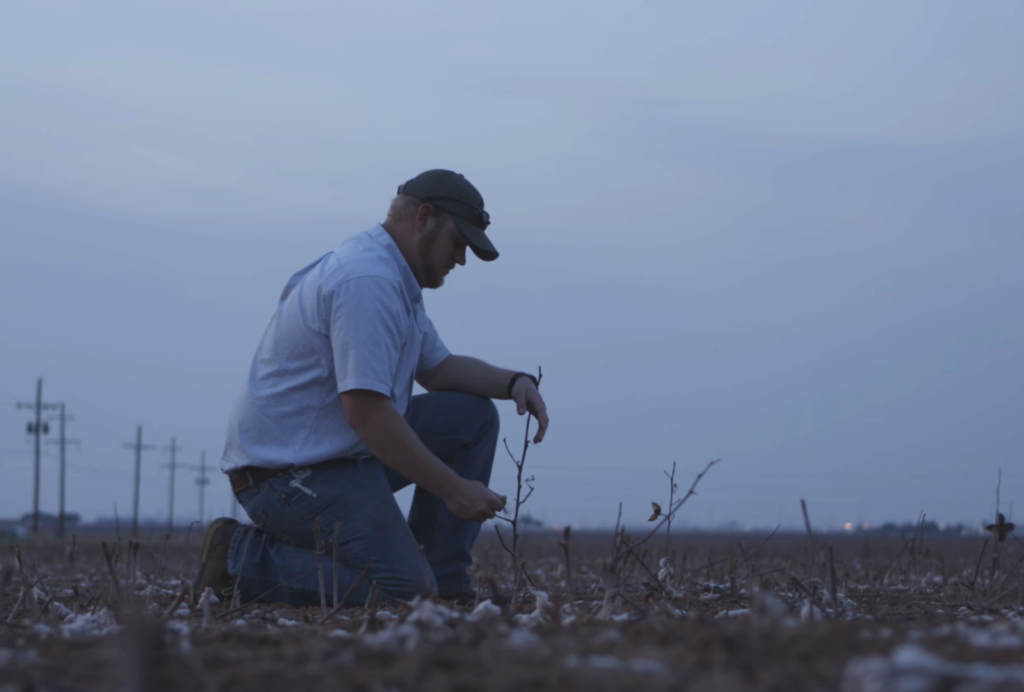Gold medal awarded to Texas farmer mental health video
AgriLife Extension specialists help increase awareness and need for support
Miquela Smith and Tiffany Lashmet have both seen the duress suffered by so many in the agricultural industry and the stress on the faces of agricultural producers they’ve worked with in their respective Texas A&M AgriLife Extension Service roles.

Knowing the statistics and realizing the importance of encouraging these individuals who are struggling to get help, the two combined their talents to get funding for and create a farm-ranch stress video that has now won a gold National Health Information Award.
Smith is an AgriLife Extension program specialist for the agency’s Disaster and Assessment Recovery Unit, based in Lubbock, and Lashmet, J.D., is an AgriLife Extension agriculture law specialist in the Texas A&M Department of Agricultural Economics, based in Amarillo.
The approximately 12-minute-long video, “Farmer Mental Health with Grant Heinrich,” is the fourth episode of the Home Safe Home series produced by the Southwest Center for Agricultural Health, Injury Prevention and Education, also known as the Southwest Ag Center, which shows farm families how to “protect their legacy” through health and safety.
Smith and Lashmet were awarded a $10,000 outreach mini-grant by the Southwest Ag Center to conceptualize and produce the video with Pine Curtain Film Company.
The gold medal video
The video tells the personal experience of Grant Heinrich, a graduate of West Texas A&M University and location manager for Pro-Agri Spraying Inc. in Slaton, who was confronted by the specter of suicide after previously losing an uncle and two cousins to that same fate.

One goal of the video, Smith said, is to dispel stigma related to talking about mental health challenges and touts the tagline #SpeakUpShareHope, which was started by the Meadows Mental Health Policy Institute.
In the video, Heinrich talks about unique farm stressors and his family’s losses to suicide. Smith and Lashmet use the video as an educational tool and have received very positive reviews from program attendees. They plan to create additional videos when funding becomes available to bolster their efforts to address farmer mental health in Texas.
“The purpose of the video is to raise awareness about the unique stressors faced by those working in agriculture and to encourage those who may be struggling to speak up,” Smith said. “This video shares the moving and very personal experience of one farmer’s and farming family’s experience with suicide. More importantly, it communicates a message of hope and the resiliency of those working in agriculture.”
Smith and Lashmet believe the topic is vitally important and aligns with the AgriLife Extension mission of improving the lives of Texans. The two said the agency continues to address mental health issues and suicide prevention through programs around the state.
The mental health challenge in agriculture
Those working in agriculture experience higher rates of depression, substance use and suicide compared to those working in other occupations. Additionally, data from the Centers for Disease Control and Prevention shows farmer suicide has increased by 40% in the last two decades.
Isolation, access to and cost of professional treatment and the stigma associated with asking for help remain barriers to those in agricultural and rural communities seeking the mental health care they need.
“Those involved in agriculture and agriculture-related pursuits often face high levels of stress because so many of the factors affecting their lives and livelihoods are beyond their control,” Lashmet said. “Much of this stress comes from uncertainty about things out of the individual’s control, such as the weather and negative changes in market conditions. Other contributing factors may include things like isolation and lack of resources. And, for families with generational farms and ranches, the pressure of continuing that legacy can also take a toll on people’s mental health.”
She said this lack of control over one’s life and livelihood can lead to chronic stress, which can, in turn, lead to problems with a person’s mental health.
“If someone is unable to deal with such stress, it often leads to a negative mental state and possibly to thoughts of suicide,” she said.
Lashmet also noted that finding help with one’s mental health can be even more difficult for people who live in rural or agricultural communities as they are often isolated and distant from mental health resources or services.
“There may also be challenges to finding resources and help online, as there is often limited or unreliable internet service in many rural areas,” she noted.
Farm and ranch families and workers who are in immediate crisis or need support can call or text the national 988 Lifeline. The 988 Lifeline is available 24/7 and will connect callers with trained counselors. The AgriStress Helpline and the The SW Ag Center Website also provide mental health resources tailored to the farming and ranching communities.


